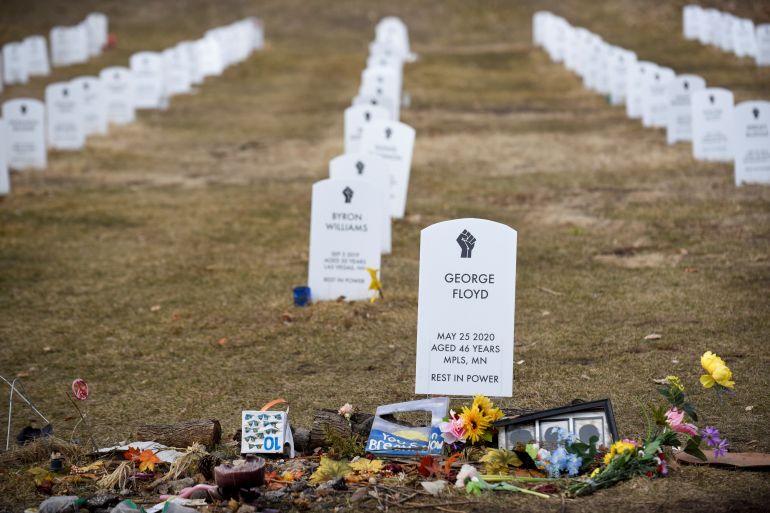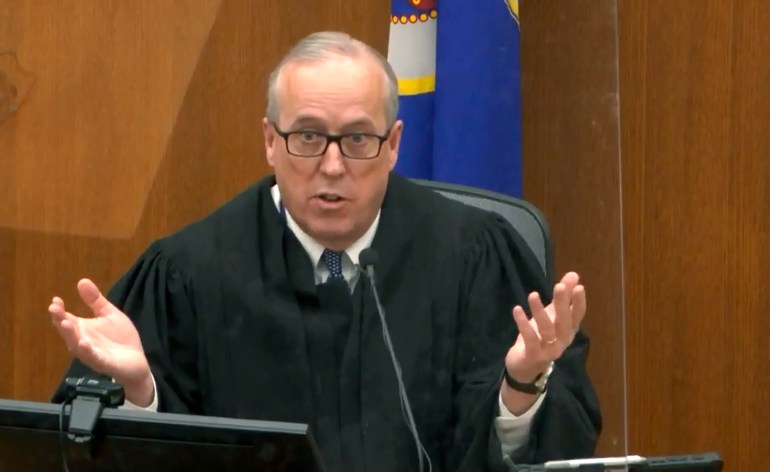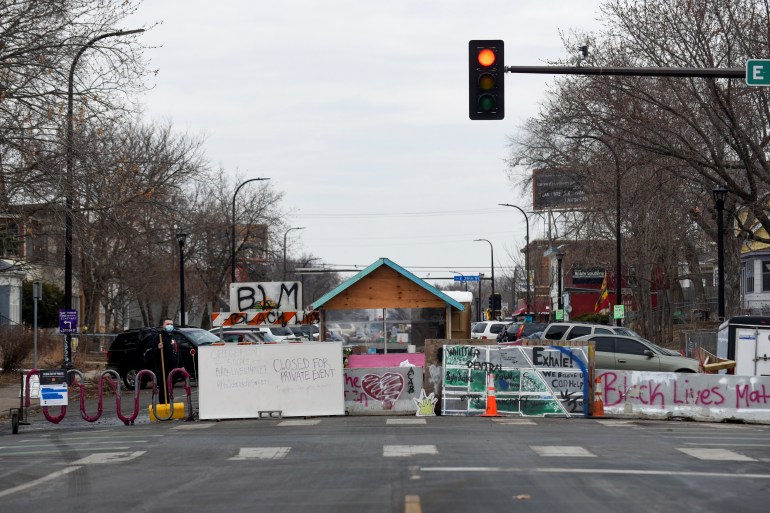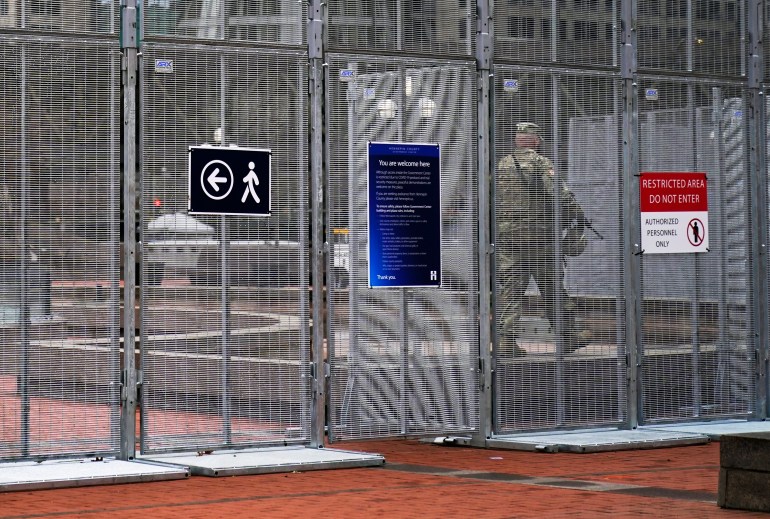Third-degree murder charge reinstated in George Floyd murder case
Former Minnesota policeman Derek Chauvin will now face three charges in the death of Floyd.

A Minnesota judge granted a request by prosecutors on Thursday to reinstate a charge of third-degree murder against Derek Chauvin, the former Minneapolis police officer who is on trial already facing second-degree murder and manslaughter charges.
Chauvin is to be tried for the killing of George Floyd.
Keep reading
list of 3 itemsJury selection starts for trial of ex-cop in George Floyd’s death
Minneapolis selects first jurors for George Floyd murder trial
Judge Peter Cahill’s decision comes after the Minnesota Court of Appeals ruled on Friday that he must reconsider a third-degree murder charge against 44-year-old Chauvin, whose trial got under way with jury selection this week in Minneapolis.
“I have to follow the rule that the court of appeals has put in place,” Cahill said, explaining his decision.
Chauvin already faces a more serious charge of second-degree murder, which carries a sentence of up to 40 years in prison, as well as a charge of second-degree manslaughter.
The reinstatement of a third-degree murder charge was a victory for state prosecutors, who had sought the additional lesser murder charge in part to afford them an extra path to a conviction should the jury find the evidence does not support the most serious charge. The third-degree murder charge carries a sentence of up to 25 years in prison.

Legal experts say the additional charge helps prosecutors by giving jurors one more option to convict Chauvin of murder.
The dispute over the third-degree murder charge revolved around the conviction of another former Minneapolis police officer in the unrelated killing of an Australian woman. The appeals court recently affirmed Mohamed Noor’s third-degree murder conviction in the 2017 shooting death of Justine Ruszczyk Damond, and the state used that affirmation to argue that it established a new justification for the charge in Chauvin’s case.
Cahill agreed that the precedent has now been established.
Chauvin’s charges stem from his actions during the arrest of Floyd on May 25, 2020. Videos show Chauvin, who is white, kneeling on Floyd’s neck for nearly nine minutes on a sidewalk outside a grocery store as the Black man pleaded for his life and then stopped moving. Police were arresting him on suspicion of using a counterfeit $20 bill at the store. Floyd’s death outraged people around the world and helped fuel one of the largest protest movements ever seen in the United States, with daily demonstrations against racism and police brutality.
Three other police officers charged in the killing will be tried separately.
Jury selection for Chauvin’s trial was set to resume on Thursday morning, with five jurors already seated.
Lawyers have given considerable attention to the jury pool’s attitudes towards the police in the first two days of questioning, trying to determine whether they are more inclined to believe testimony from law enforcement over evidence from other witnesses to the fatal confrontation.

The first juror picked on Wednesday, a man who works in sales management and grew up in a mostly white part of central Minnesota, acknowledged saying on his written questionnaire that he had a “very favorable” opinion of the Black Lives Matter movement and a “somewhat unfavorable” impression of the Blue Lives Matter countermovement in favour of the police, yet “somewhat agreed” that police do not get the respect they deserve. He said he agrees that there are bad police officers.
“Are there good ones? Yes. So I don’t think it’s right to completely blame the entire organisation,” he told the court under questioning from prosecutor Steve Schleicher.
He also said he would be more inclined to believe an officer over the word of another witness. But he said he could set aside any ideas about the inherent honesty of an officer and evaluate each witness on their own.
The second, a man who works in information technology security, marked “strongly agree” on a question about whether he believes police in his community make him feel safe. His community was not specified — jurors are being drawn from all over Hennepin County, which includes Minneapolis and many of its suburbs.
“In my community, I think when there is suspicious activity the police will stop by, they will ask a question,” he said. “I think that sense of community is all we want, right? We want to live in a community where we feel safe regardless of race, colour and gender.”
Schleicher noted that the man also stated in his questionnaire that he strongly disagreed with the concept of “defunding” the police, which has become a political flashpoint locally and across the country in the wake of Floyd’s death.

“While I necessarily might not agree with the police action in some situation, I believe that in order for police to make my community safe they have to have the money,” he replied.
The questionnaire explores potential jurors’ familiarity with the case and their own contacts with police. Their answers have not been made public, and the jurors’ identities are being kept secret. Their racial backgrounds often are not disclosed in open court.
Chauvin and three other officers were fired. The others face an August trial on aiding and abetting charges. The defence has not said whether Chauvin will testify in his defence.
Schleicher used a peremptory challenge on Wednesday to remove from the panel a woman who has a nephew who is a sheriff’s deputy in western Minnesota. She said she was dismayed by the violence that followed Floyd’s death.
“I personally didn’t see any usefulness to it,” she said. “I didn’t see anything accomplished by it, except I suppose bring attention to the frustrations of the people involved. But did I see anything useful coming out of the burning of Lake Street and that sort of thing? I did not.”